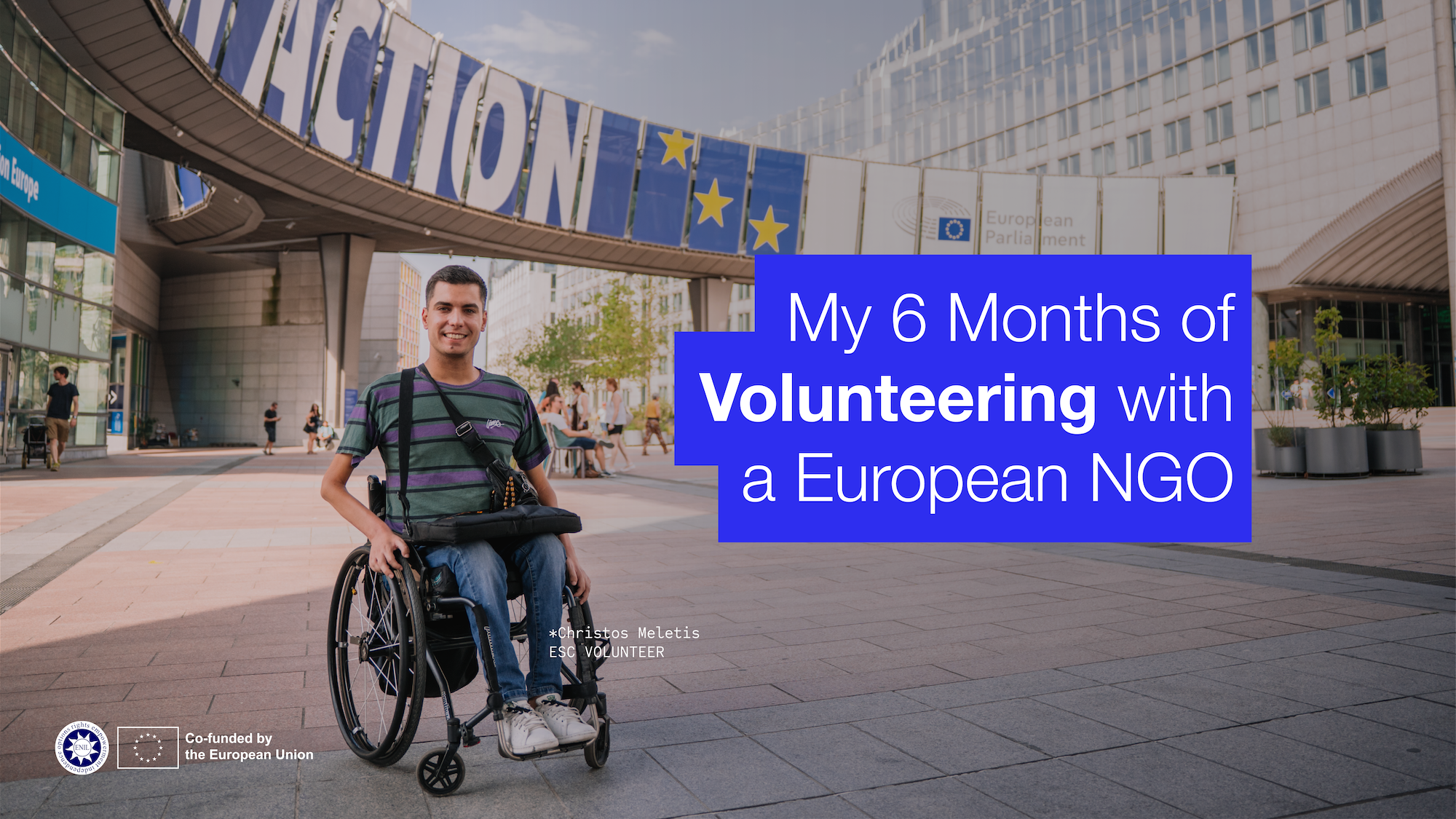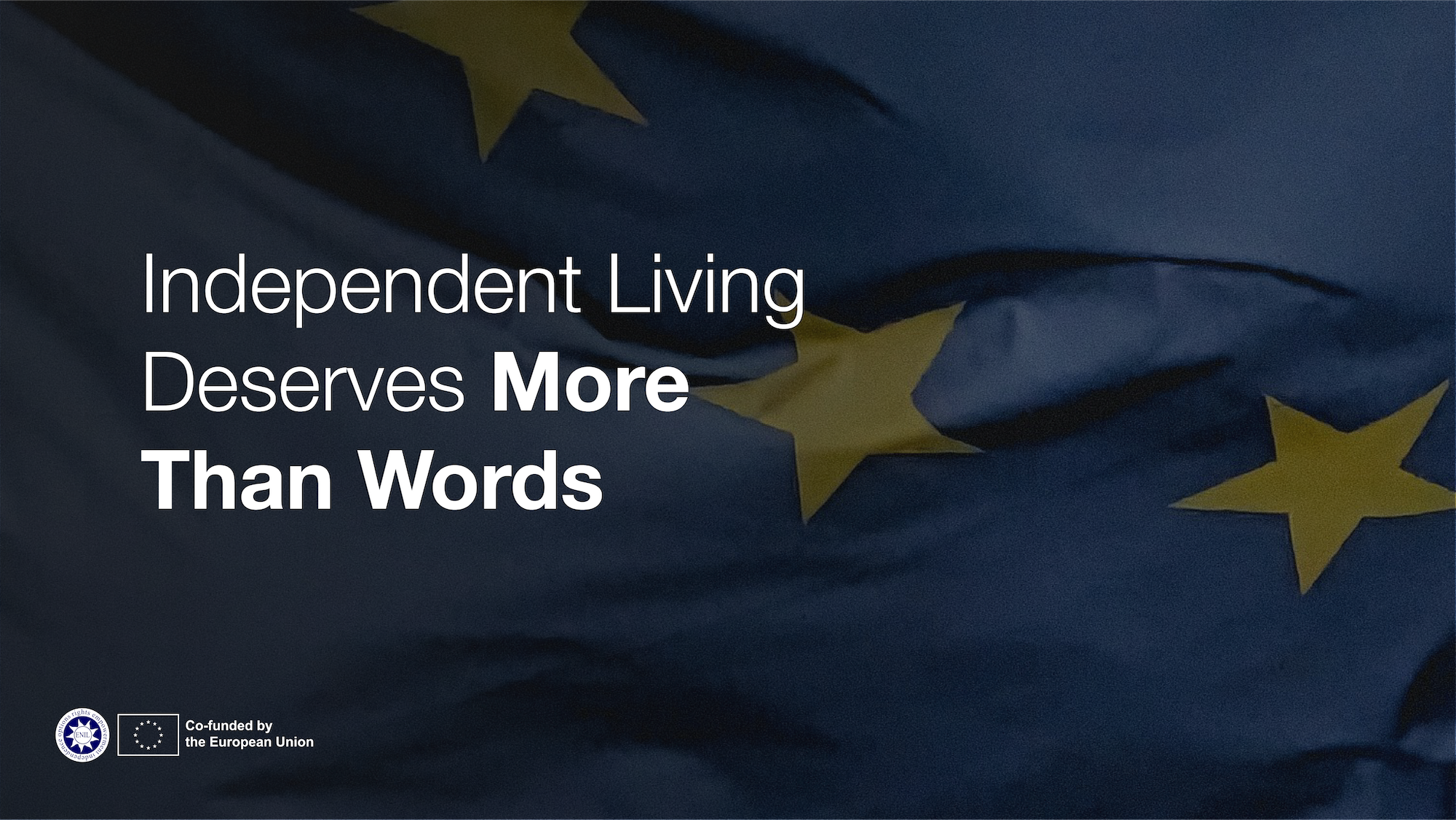By Lauren Budeus
As we commemorate ND Pride Day, it’s an opportune moment to reflect on the significance of Independent Living (IL) for neurodivergent (ND) individuals and discuss the steps needed to enhance their access to independent living. The European Network on Independent Living (ENIL) stands at the forefront of advocating for the rights and empowerment of disabled people across Europe. ENIL’s mission to promote a barrier-free environment and ensure that all disabled individuals, including those who are neurodivergent, can exercise choice and control over their lives is critical in advancing social inclusion and human rights.
Understanding Neurodiversity and Independent Living
Neurodiversity recognizes the diversity of human brains and minds. It includes conditions such as autism, ADHD, dyslexia, and other neurological variations. For ND individuals, independent living is not merely about physical independence; it’s about having control over their daily lives, making their own choices, and living in an environment that respects their unique needs and abilities.
It’s important to note that not all ND people consider themselves disabled. However, many often find that the environments they need to operate in, and people’s attitudes towards them, can be disabling. This distinction underscores the necessity for inclusive practices and environments that accommodate a wide range of needs and preferences.
The Importance of Independent Living for ND Individuals
As a neurodivergent individual, I believe it’s crucial for the broader disability community to understand that our needs can be quite distinct and varied in the same way theirs are. Neurodiversity encompasses a wide range of conditions, each with its unique set of challenges and strengths. Unlike some physical disabilities, neurodivergent conditions are often invisible, which can lead to misunderstandings or misconceptions about our capabilities and needs.
One key aspect is the importance of sensory-friendly environments, especially workplaces. Many of us experience sensory sensitivities that can make everyday situations overwhelming. Simple accommodations, such as quiet spaces, flexible lighting, and reduced noise levels, can significantly enhance our comfort and ability to participate fully in various settings.
Another important point is the need for personalized support. Neurodivergent individuals often benefit from tailored approaches rather than one-size-fits-all solutions. Whether it’s in education, employment, or daily living, having support systems that recognize and adapt to our unique ways of processing information and interacting with the world can make a world of difference. Moreover, there needs to be greater awareness and acceptance of different communication styles. Some neurodivergent individuals may communicate differently, whether through alternative communication devices, written text, or more structured verbal interactions. Recognizing and respecting these differences can foster better understanding and inclusion, and new AI tools available can support everyone with their communication needs, not just the ND community.
Challenges and Needs
Despite the progress made, many ND individuals still face significant challenges in accessing independent living. These challenges include:
- Lack of Awareness and Understanding: Service providers and the broader community often lack awareness and understanding of neurodiversity, leading to inadequate support and services. There are still negative presumptions made about disabilities and ND conditions that consider us to be lesser people, disordered and defect.
- Inaccessible Environments: Many environments are not designed with neurodiversity in mind. Sensory overload, lack of quiet spaces, and inflexible routines can make independent living difficult for ND individuals.
- Insufficient Support Services: Access to personal assistance, mental health services, and other support systems are crucial but often underfunded or unavailable. Many doctors and health professionals still do not have sufficient understanding of ND conditions.
Steps to Improve Access
- Education and Training: Increasing awareness and understanding of neurodiversity through education and training for service providers, employers, and the community is essential.
- Policy and Advocacy: Advocacy for policies that promote the rights of ND individuals and ensure the provision of necessary support services is vital.
- Peer Support and Networks: Establishing and strengthening peer support networks can provide ND individuals with the resources and community they need to thrive.
- Inclusive Design: Ensuring that public spaces, workplaces, and homes are designed with neurodiversity in mind can significantly enhance the quality of life for ND individuals.
Building Solidarity Between the Neurodivergent and Broader Disability Communities
The neurodivergent and broader disability communities share a common goal: the empowerment and inclusion of everyone, no matter their difference. By recognizing our shared struggles and strengths, we can form a powerful alliance to advocate for our rights and improve our collective quality of life.
- Mutual Advocacy and Support: We can support each other by advocating for policies and practices that benefit all disabled people and the wider population. For instance, pushing for more inclusive and accessible public spaces, better healthcare services, and anti-discrimination laws will benefit both communities.
- Sharing Resources and Knowledge: The disability community has a wealth of experience in advocacy, navigating services, and community building. By sharing these resources and knowledge, we can help neurodivergent individuals who might be newer to the advocacy scene or unfamiliar with available support systems.
- Joint Campaigns and Initiatives: Collaborative campaigns can raise awareness about both visible and invisible disabilities and differences. Joint initiatives can highlight the diversity within the disability community and show that inclusion must account for a wide range of needs.
- Fostering Inclusive Environments: Working together to create environments that are not only physically accessible but also sensory-friendly and accommodating to different communication styles will benefit everyone. For example, conferences and public events can be organized with considerations for both physical accessibility and sensory sensitivities. Remote working has positively benefitted both those with physical and invisible disabilities, as well as the neurodiverse. In turn, this benefits employers as they can recruit and maintain a diverse workforce.
- Building Solidarity: Solidarity is about standing together. By supporting each other’s events, causes, and campaigns, we can build a stronger, more united front. This includes attending each other’s awareness days, participating in cross-disability dialogues, and showing up for one another in advocacy efforts.
- Educational Efforts: Educating the broader public about the full spectrum of disabilities, including neurodiversity, can help reduce stigma and foster a more inclusive society. Joint educational programs and public speaking engagements can spread this knowledge more widely.
By understanding and embracing our differences, and recognizing the unique contributions each of us brings, we can build a more inclusive and supportive community. Together, we can work towards a future where all disabled people, neurodivergent or otherwise, have the opportunity to live independently and with dignity.
As we celebrate ND Pride Day, let us reaffirm our commitment to these principles and continue to work towards a more inclusive and equitable world for all.



